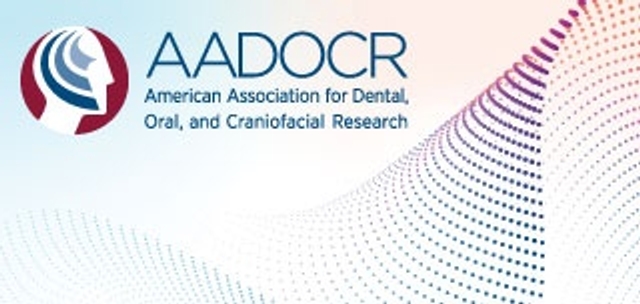2023 AADOCR/CADR Annual Meeting
The 2023 AADOCR/CADR Annual Meeting & Exhibition provided dental, oral, and craniofacial health scientists with the opportunity to present, discuss, and critique their latest and most...


OHStat: Introducing New Statistical Guidelines for Oral Health Research
IADR Informational Webinar about OHStat checklist

Webinar: Decolonizing Oral Health Research, Methodologies, and Education
Webinar sponsored by the IADR Global Oral Health Inequalities Research Network (GOHIRN)

Webinar: Honing Your Research Presentation Skills and Scientific Communication
Webinar Hosted by: AADOCR National Student Research Group (NSRG)

Webinar: The Careful Use of Causal Inference in Oral Health Research Using Epidemiological Data
Webinar hosted by IADR Behavioral, Epidemiologic and Health Services Research Group (BEHSR)

2022 AADOCR Fall Focused Symposium: Accelerating Translation of Tissue Engineering and Regenerative Medicine Technologies in the Dental, Oral, and Craniofacial Space
Webinar: November 2, 2022 • 4 CE Hours Sponsoring Groups: AADOCR

Julie Posselt - "Equity in Science: Representation, Culture, and the Dynamics of Change"
Presented: Mar 15, 2023 • 1 CE Hour Julie Posselt, Associate Dean, Graduate School; Associate Professor of Education; University of Southern California

Shoukhrat Mitalipov - "Gene and Cell Therapy in Reproductive Medicine"
Presented: Mar 16, 2023 • 1 CE Hour Shoukhrat Mitalipov, Professor and Director, Center for Embryonic Cell and Gene Therapy, Oregon Health & Science University

Brian J. Druker - "Imatinib as a Paradigm of Targeted Cancer Therapies"
Presented: Mar 16, 2023 • 1 CE Hour Brian J. Druker, Director, OHSU Knight Cancer Institute

Alexis Kalergis - "Immunology and Immunotherapy: Impairment of Immunological and Neurological Synapses as Virulence Mechanisms of Respiratory Viruses"
Presented: June 24, 2023 • 1 CE Hours Distinguished Lecture Series

NSRG Webinars - Upcoming & Recordings
View all webinars hosed by the AADOCR National Student Research Group (NSRG)